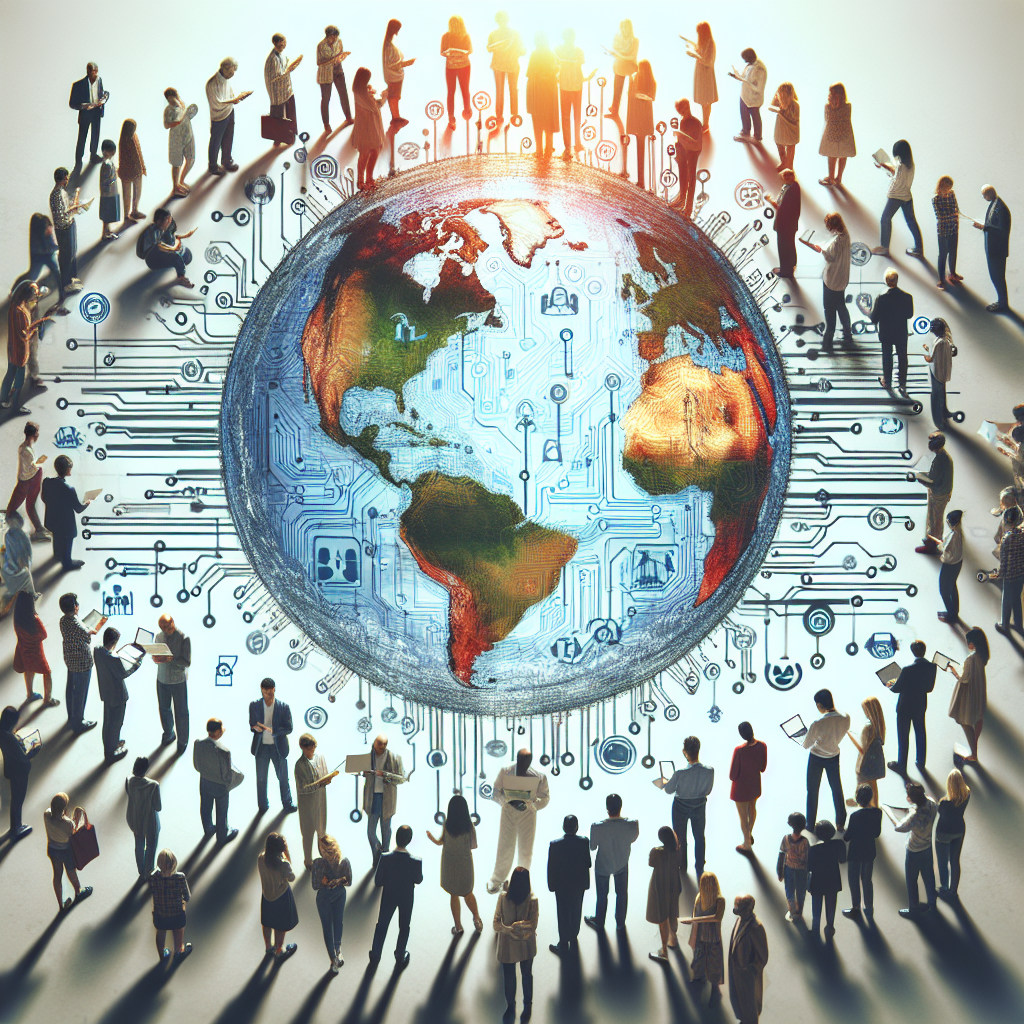The Future of AI: A Democratized World
Artificial Intelligence (AI) has been a hot topic in recent years, with advancements in technology and increased adoption across various industries. From personalized recommendations on streaming services to self-driving cars, AI has the potential to revolutionize the way we live and work. However, there are concerns about the impact of AI on society, such as job displacement and ethical concerns. In this article, we will explore the future of AI and how it will shape a democratized world.
AI has the potential to democratize access to information and services, leveling the playing field for individuals and businesses. With AI-powered tools, anyone can access vast amounts of data and insights to make informed decisions. For example, AI algorithms can help small businesses analyze customer data to improve marketing strategies, or assist students in personalized learning experiences.
In the healthcare industry, AI has the potential to revolutionize patient care and diagnosis. With AI-powered tools, doctors can analyze medical images and patient data more efficiently, leading to faster and more accurate diagnoses. This can lead to improved patient outcomes and reduced healthcare costs. AI can also help in drug discovery and personalized medicine, tailoring treatments to individual patients based on their genetic makeup and other factors.
In the field of education, AI can provide personalized learning experiences for students, adapting to their individual learning styles and pace. AI-powered tutoring systems can provide real-time feedback and support to students, helping them to master difficult concepts and improve their academic performance. This can help bridge the achievement gap and provide equal opportunities for all students, regardless of their background.
AI also has the potential to transform the way we work, with automation of repetitive tasks and augmentation of human capabilities. With AI-powered tools, employees can focus on more creative and strategic tasks, leading to increased productivity and job satisfaction. However, there are concerns about job displacement, as AI and automation may replace certain jobs. It is important for policymakers and businesses to invest in retraining programs and upskilling initiatives to ensure that workers are prepared for the changing labor market.
In the realm of entertainment and media, AI can personalize content recommendations and create immersive experiences for users. AI-powered algorithms can analyze user preferences and behavior to recommend relevant content, leading to increased engagement and retention. Virtual reality (VR) and augmented reality (AR) technologies powered by AI can create interactive and immersive experiences for users, blurring the lines between the physical and digital worlds.
Despite the potential benefits of AI, there are ethical concerns that need to be addressed. Issues such as bias in AI algorithms, data privacy, and the impact on jobs and society need to be carefully considered. It is important for policymakers, businesses, and technologists to work together to develop ethical guidelines and regulations to ensure that AI is used responsibly and ethically.
FAQs
Q: What is AI?
A: Artificial Intelligence (AI) is a branch of computer science that aims to create intelligent machines that can perform tasks that typically require human intelligence, such as visual perception, speech recognition, decision-making, and language translation.
Q: How is AI being used today?
A: AI is being used across various industries, including healthcare, finance, education, entertainment, and media. AI-powered tools are used for tasks such as personalized recommendations, predictive analytics, image recognition, natural language processing, and autonomous vehicles.
Q: What are the benefits of AI?
A: AI has the potential to revolutionize the way we live and work, with benefits such as increased efficiency, productivity, and innovation. AI-powered tools can help businesses make better decisions, improve customer experiences, and drive growth and profitability.
Q: What are the ethical concerns surrounding AI?
A: There are concerns about bias in AI algorithms, data privacy, job displacement, and the impact on society. It is important for policymakers, businesses, and technologists to address these concerns and develop ethical guidelines and regulations to ensure that AI is used responsibly and ethically.
In conclusion, the future of AI is bright, with the potential to democratize access to information and services, revolutionize industries, and improve the way we live and work. However, it is important for stakeholders to address ethical concerns and ensure that AI is used responsibly and ethically. By working together, we can harness the power of AI to create a more inclusive and equitable world for all.

